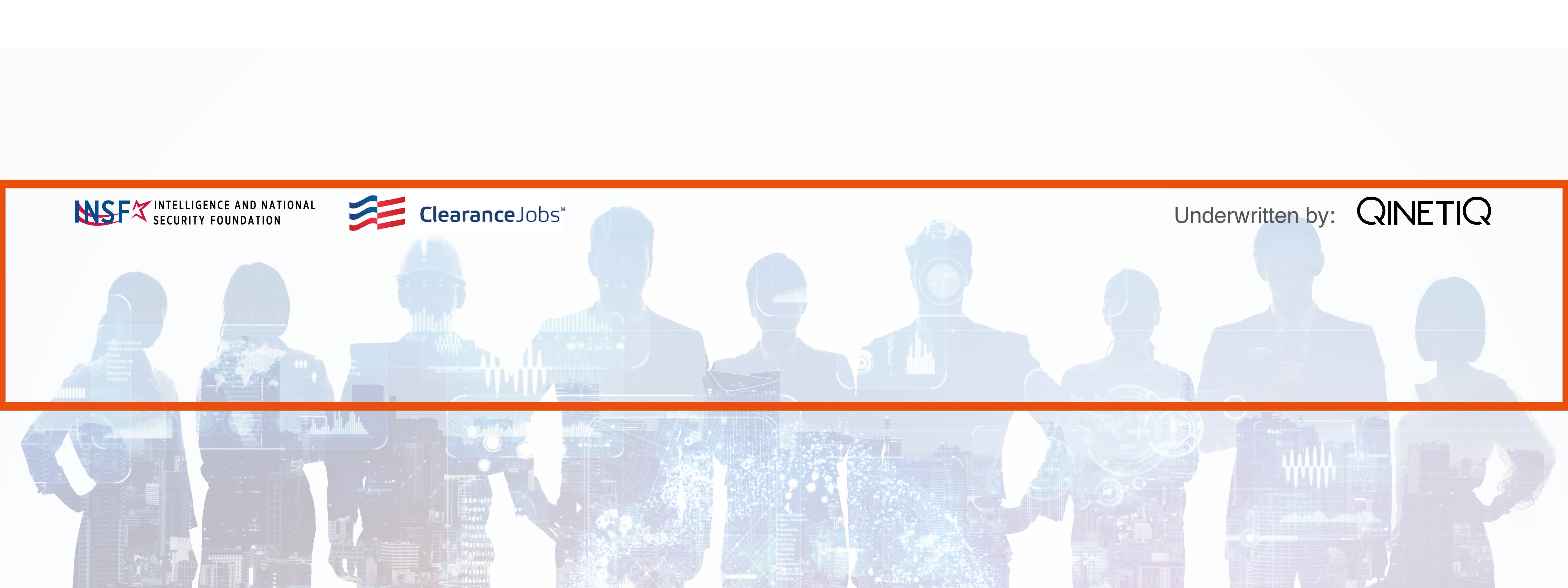
Gaining Information Advantage: The Workforce
May 15, 2023 2:00 PM to 3:00 PM
On Monday, May 15, the Intelligence and National Security Foundation (INSF) launched the 2023 “The Future of the IC Workforce" Multimedia Campaign, a three-part series focused on Gaining Information Advantage.
Underwritten by QinetiQ US, the first installment examined the IC workforce, and featured Scott Coltson, Deputy Director for Mission Services, DIA; Christine C. Parker, Senior Strategist, Acting Senior Advisor to the Chief Human Capital Officer, NSA; Pamela Hardy, QinetiQ US; and moderated by Lindy Kyzer, Director of Content at Clearance Jobs.
The panel began with the question: How do we create real information advantage through our workforce? Scott Coltson shared how DIA has been getting back to basics recruiting and evaluating talent, including reach out to HBCU’s; expanding geographic diversity; and focusing recruitment on needed skillsets. Christine Parker agreed that searching for the right skills is key to NSA’s approach as well, focused on preparing for the needs 5 or 10 years down the road. All three panelists echoed the need to build relationships with candidates and students early and to better explain their mission to initial recruits, both to create connections and establish expectations for their future work.
The conversation shifted to the material changes being made to improve the recruitment and evaluation process. Mr. Coltson focused on how DIA has automated parts of the process and is looking at emerging technologies like AI and ML to further improve them. Christine Parker highlighted the communications dashboard that allows NSA to better track candidates and where in the application process they are.
Moderator Lindy Kyzer asked about pay transparency, classification changes, security clearances and how they impact the workforce approach for the panelists. Mr. Coltson and Ms. Parker both highlighted that while government cannot always compete directly with private pay scales, they can offer professional training and incentives that cannot be found anywhere else.
Conversation shifted to how COVID impacted retention. Speakers noted that COVID shifted people’s thinking about whether they will be happy, cared for, and appreciated at their workplace at a different level than before. Ms. Parker highlighted how NSA put out a wellness strategy to help employees with their financial, cultural, physical, and mental health. Mr. Coltson highlighted learning opportunities-training at home, hybrid work to help empower people to live the lives they want to, and making sure everyone has the tools and support needed to accomplish their mission, grow, and be happy while doing it.
Finally, the panelists discussed upskill and reskill efforts. Ms. Parker discussed how NSA is planning to make sure people have the tools they need, both today and in the future. Conversation touched on accommodations (neurodiversity, fostering clear definitions of the clearance process) that can make applicants’ lives and recruitment easier. Mr. Coltson praised the public-private talent exchange that DIA offers, allowing cross-pollination of ideas and skills across the IC. All three panelists are excited about how that kind of modern training, better recruitment, and stronger retention all coalesce to create a more impactful workforce, helping to create the Information Advantage the United States needs.
Sponsors
-

Underwriter
